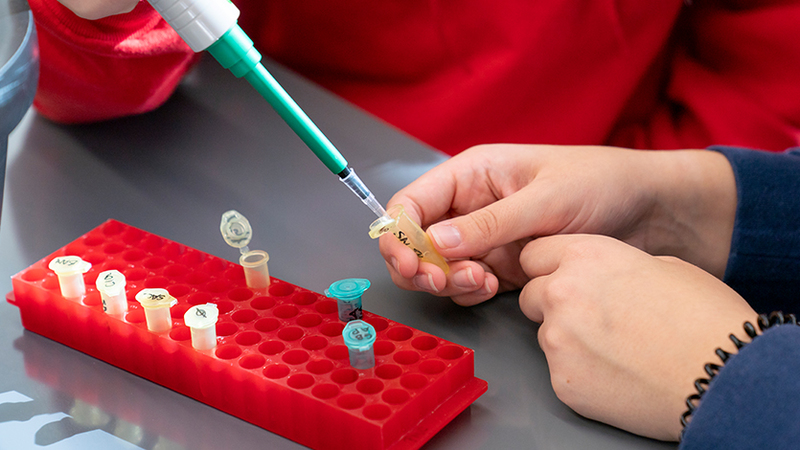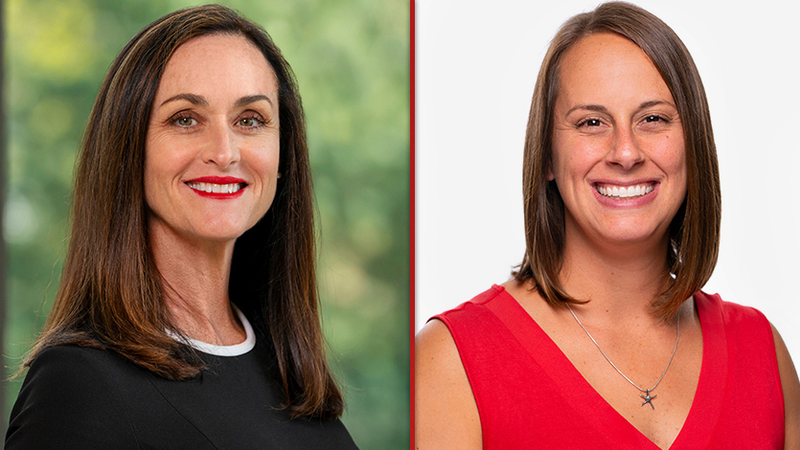FACULTY
Faculty Spotlight — Student Success in the Sciences
Anthony Proia, Director of Media Relations
August 21, 2023 — Faculty at Marist College participated in a research project aimed at improving student achievement in introductory science college courses. The project was made possible through a grant from the American Talent Initiative (ATI) which works to bring top colleges and universities together to expand access and opportunity for academically talented students with low and moderate income.
Marist's project was led by Dean Alicia Slater and Dr. Elizabeth Godin from Marist’s School of Science and Dr. Kate Wright from the Rochester Institute of Technology. Gateway STEM (science, technology, engineering, and mathematics) courses are known to be barriers to student success and students have historically received more “DFW” grades (grades of D or F and withdrawals) in these courses compared to other introductory courses.
“My passion for this work came from almost 20 years of teaching introductory biology courses,” Slater said. “These courses were some of the most academically challenging courses in the curriculum and, as a result, they often discouraged potential scientists and healthcare providers from entering those professions. I wanted to find ways to transform this lost potential into stories of success while maintaining or improving learning gains.”
Dean Slater and Dr. Godin looked for ways to provide academic support for students in gateway courses in order to increase their academic performance. Dean Slater suggested the use of supplemental peer instruction, which involves having a peer instructor embedded in the course in addition to the academic supports already in place. Peer instruction is based on the premise that students who have recently completed a course successfully can act as translators to help beginners master the material.
“I became interested in this project after becoming aware of high DFW rates in our introductory biology courses,” Godin said. “Preliminary data suggests that the inclusion of a peer instructor helps students to be more successful. I am looking forward to our next cohort to see if the trend continues.”
Read more about the project and how it led to decreased DFW rates in gateway biology courses here.
The project is a further reflection of the School of Science’s commitment to supporting success. The School is also in the initial stages or participating in the Gateways to Completion project — a collaboration with the John N. Gardner Institute for Excellence in Undergraduate Education. The research goal is to increase student success in gateway courses, first-year retention, and 6-year graduation rates.
Marist University | Marist Archives & Special Collections | Contact Us

